In addition to the standardized tests including the GMAT, there are several other components to your MBA application you'll want to prepare.
Transcripts
In order to complete your application, you will need to submit official transcripts from each institution at which you studied. Each transcript should contain a complete record of the studies to date at the institution from which it was issued, including the subjects taken and grades earned in each subject.
Resume
While the admissions committee may spend only a few seconds reviewing your resume, it's crucial in creating that first impression of you as a person, employee and potential business school student. To make the best impression possible, provide details of your accomplishments, responsibilities and contributions. Where possible, use concrete numbers to demonstrate achievement. Be as thorough, but concise as possible, and include your strongest work at the top of your resume. This is also a great place to highlight your non-work related activities such as community service, campus leadership, and special honors you've received.
Letters of Recommendation
You will need to submit at least two letters of professional recommendations from people who have supervised your work and/or assessed your performance during your career. Schools will be hoping to discover specific descriptions and examples illustrating your potential to make a difference in the world. Choose individuals who know you well, and who will take the time to write thorough, detailed letters with specific anecdotes and examples. The strongest references will demonstrate your leadership potential and personal qualities. And remember, schools are impressed by what the letter says and how it reads, not by the title of the person who writes or the native language of the recommender.
Essays
It is extremely helpful to be aware of what types of questions you will be asked. Although many schools change their essay questions from year to year, by reading a prior year's application, you will get a good idea of the types of stories you will need. Most schools will post the previous year's essay questions on their admissions site. At their core, however, most essay questions are designed to elicit a very fundamental set of information — why do you need an MBA, why now, and why from us? The admissions committee is looking for unequivocal evidence of your professional maturity as shown by your clarity of purpose.
Optional Essay
Many schools will allow you to submit an "optional" essay. This is the perfect vehicle for explaining any major weaknesses (low GPA, low GMAT score, gaps in work experience). You can also use the optional essay to highlight a strength in your candidacy that you didn't disclose elsewhere in your application materials. While it's easy to highlight your accomplishments, don't be afraid of your weaknesses — everyone has them. You're better off acknowledging your shortcomings, providing context for them, and demonstrating how you've worked to overcome them.
Interviews
Most business schools will require an interview as part of the admissions process. You will either be invited to interview as a next step after you submit your application, or some schools allow you to request an interview.
Much like the written essay questions, the admissions interview will likely focus on addressing the questions of why you want an MBA, what you will do with your degree, why you want to attend that particular school and whether a particular school is a good fit.
But while the interview gives the admissions committee an opportunity to glean more information about you as a candidate, it also gives you the opportunity to learn more about the school and ask questions about the program.
Be sure you come prepared with questions — it shows the interviewers you are thoughtful and serious about this decision. Don't waste the opportunity by asking something you already know the answer to or could easily find by doing a little research. Instead, focus on questions that really matter to your experience as a student and what you hope to achieve.
It's also important to follow up after an interview with a thank you letter, which demonstrates your gratitude for the time to be considered, your professionalism, and can act as a reinforcement of your qualifications. Be brief, but specific and sincere.
Taking the GMAT
For many, taking the GMAT might be the most nerve-wracking part of the business school application process — particularly if you think of yourself as a bit math-challenged. But don’t panic. With study and planning you can be well-prepared for the challenge.
About the Test
The GMAT exam of four main sections: Analytical Writing Assessment, Integrated Reasoning, Quantitative and Verbal. The exam is offered year-round and on demand in test centers around the world.
The Analytical Writing Assessment is designed to measure your ability to think critically and to communicate your ideas. It consists of one 30-minute essay for which you will be asked to analyze the reasoning behind a given argument and write a critique of that argument. You are not being asked to present your own views on the subject.
The Integrated Reasoning section will see how you synthesize data, evaluate relevant data from different sources, organize data to see relationships, and combine and manipulate data to solve complex problems that depend on information from one or more sources.
The Quantitative section — also known as the "math" section — measures your ability to reason quantitatively and solve quantitative problems. It consists of two types of questions: problem-solving and data-sufficiency. Both types of questions require knowledge of arithmetic, elementary algebra and commonly known concepts of geometry.
In the Verbal section, three types of multiple-chose questions are used to assess reading comprehension, critical reasoning and sentence correction. You will read and comprehend written material, reason and evaluate arguments, and correct written material to conform to standard written English.
Preparing for the Test
Taking practice tests will help you understand your current skill levels and where you need to focus your study efforts. For any areas in which you find yourself deficient, consider taking one of the many test-prep courses available either online or in a live, group format. Most GMAT test takers start preparing three to six months before the actual test date. Think about you can best prepare, given your discipline, motivation and personal preferences.
Scores and Reports Your unofficial score report will be available immediately after the test. Official score reports are available online within 20 days to you and to the programs you requested to receive them. If you’re not satisfied with your score, you can take the test up to five times within a 12-month period.Scheduling Your Exam
To schedule your exam and learn more about the GMAT, visit MBA.com.
Other Standardized Tests
Although the GMAT is still the most widely accepted standardized test by business schools, many consider additional tests as part of their admissions process.
GRE General Test
The GRE General Test is the only admissions test for graduate or business school that lets you skip questions within a section, go back and change answers, and have control to tackle the questions within a section you want to answer first. The GRE is comprised of three key areas:
The Verbal Reasoning section measures your ability to analyze and evaluate written material and synthesize information obtained from it, analyze relationships among component parts of sentences, and recognize relationships among words and concepts.
The Quantitative Reasoning section measures your problem-solving ability, focusing on basic concepts of arithmetic, algebra, geometry, and data analysis.
The Analytical Writing section measures critical thinking and analytical writing skills, and your ability to articulate and support complex ideas clearly and effectively.
TOEFL iBT
If English is not your native language and you are looking to attend business school where the language of instruction is English, some schools may require you take the TOEFL iBT test. The TOEFL iBT measures your ability to use and understand English at the university level. It evaluates how well you combine your listening, reading, speaking and writing skills to perform academic tasks.
IELTS
Similar to the TOEFL iBT test, the International English Language Testing System (IELTS) assesses the English language proficiency of people who want to study or work where English is used as the language of communication. IELTS test all four language skills — listening, reading, writing and speaking. The IELTS speaking test is a face-to-face interview with a certified examiner.
Are you looking for a structured approach to the application? Consider applying for Forté MBALaunch, a 10-month program that pairs women seeking an MBA with a support network and provides a structured roadmap for applying to business schools.






























































